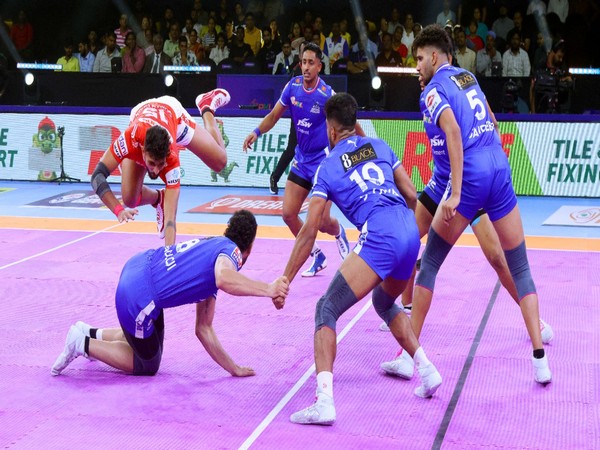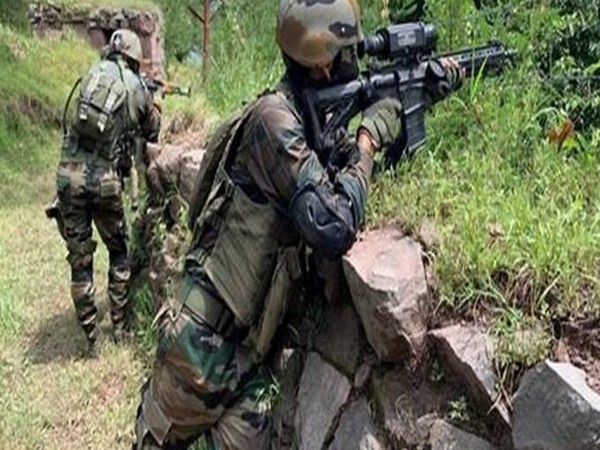Tel Aviv [Israel], July 12 (ANI/TPS): As communities in Israel’s Sharon region — the coastal plain — grapple with now daily Palestinian shooting attacks and infiltrations, local civilian security teams are beefing up on manpower and gear.
“At the beginning of the war, we were a group of people, some of whom no longer did reserve duty, who were not training much. Out of necessity, we came together, and today, we have reached a level of fitness and skill comparable to special units that trained with us recently,” Shimon Tzaraf explained to The Press Service of Israel.
Tzaraf lives on Moshav Nitzanei Oz, which abuts the Palestinian Authority city of Tulkarem. He chairs the moshav’s security committee and is a member of its emergency response team.
“The right way to be prepared for scenarios is to train, and we understand this more than ever,” he stressed.
Members of kitot konenut — local civilian security teams — are usually trained in basic military and first aid skills, and are equipped with defensive gear and weapons to handle threats until official security forces arrive. Frontline communities are strengthening their kitot konenenut after the ones near the Gaza border were overwhelmed by Hamas on October 7.
“Since October 7, we organized the efforts of the community members to build a security system from scratch–cameras, a command center, and patrols,” Tzaraf explained to TPS-IL. “With the aim of having more eyes along the fence, we managed to establish an impressive system within a few months, funded by donations and volunteers who worked on this project. The premise is that there will be a small fighting group here that will have to deal with any threat that comes along.”
‘No Choice But to Defend Ourselves’
Right now, the threat is infiltrations and daily shootings from Tulkarem.
“The border is really close. You can cross here on foot; you don’t need jeeps or trucks,” Nir Bazak, a resident of the nearby community of Shaar Efraim told TPS-IL.
Sha’ar Efraim is also forming its squad, working with a brand new security coordinator on the local security system.
“The concern is not only about what might come here from beyond the fence. If riots break out in the area in Tayibe, in Qalansawe, the security forces that will be busy there will not come here. In this situation, we will have no choice but to defend ourselves,” Bazak said. Tayibe and Qalansawe are nearby Israeli-Arab municipalities.
“Recently, people have somewhat woken up and see what is happening around us. They are aware of the infiltration attempts and shooting attacks that occur just a few hundred meters from our communities. The fence that separates us from our neighbors will not provide us with security if there is an attempt to carry out a mass terror attack here, which is why we need a local security system and the formation of emergency response teams,” Bazak said.
Residents of communities such as Nitzanei Oz, Shaar Efraim and Bat Hefer, which are right up against the Green Line, complain of daily shooting attacks from Tulkarem. They are especially alarmed by videos circulating on Hamas’s social media channels which frequently feature nighttime footage of gunmen firing at Israeli guards along perimeter fences before quickly fleeing.
In one video shared on one of the local Israeli WhatsApp groups on Wednesday, two Palestinians dressed in black combat clothing set up a cell phone to film themselves firing indiscriminately over the security barrier. One wears a green bandana associated with Hamas. This particular attack takes place in broad daylight.
While the government has allocated more money to supply and train the kitot konenenut across the country, local leaders are relying on donations to fill gaps.
Two American nonprofits, Israel Friends and Civil Squads of Israel (CSI) along with the World Zionist Organization delivered hundreds of protective ceramic vests to the Sharon Regional Council on July 4.
“Unfortunately, in recent months we have seen a significant increase in threats to borderline villages, which necessitates increasing the protective measures of our rapid response units,” said Eli Eton, head of the Regional Council.
Residents of the Sharon region are well-aware that Israeli counterterror operations frequently target Tulkarem, especially the Nur Shams refugee camp on the city’s eastern outskirts. On Tuesday, soldiers arrested several wanted terror suspects in the camp. During the raid, forces destroyed dozens of explosives buried under roads and a vehicle that held more bombs.
Since October 7, approximately 4,150 Palestinian terror suspects have been arrested in counterterror raids throughout Judea and Samaria of whom 40 per cent are associated with Hamas.
And all that stands between the terror groups and the communities like Nitzanei Oz, Sha’ar Efraim and Bat Hefer is a security barrier and the kitot konenut.
But security isn’t as tight as Tzaraf would like.
“We have a volunteer workforce that stays at the gates of the moshav and keeps it closed. This is something that no longer exists in most other communities due to a shortage of manpower. Even in our community, I don’t know how long this will last, as people volunteer for shifts during the week whenever they can,” Tzaraf told TPS-IL.
“But in the long term, we will not be able to sustain this system — guarding the gate, the command center, and patrols — all with volunteers. I am surprised that we have maintained this for nine months. The fear and the desire to protect the family overcome everything, but at some point, everything wears out,” he acknowledged.
“Before October 7, our main threats were break-ins in the community, and even those were rare. We never thought we would have to deal with the threat of terrorism.” (ANI/TPS)
Disclaimer: This story is auto-generated from a syndicated feed of ANI; only the image & headline may have been reworked by News Services Division of World News Network Inc Ltd and Palghar News and Pune News and World News
HINDI, MARATHI, GUJARATI, TAMIL, TELUGU, BENGALI, KANNADA, ORIYA, PUNJABI, URDU, MALAYALAM
For more details and packages
















